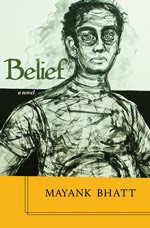A couple of weeks back I went to the launch party of
West of Wawa published by Inanna Publication and Education Inc. It was a great event
for a great book. The novel is written by
Lisa De Nikolits.
She is the most ‘un-writerly’ writer I know. She is vivacious
and friendly. That’s rare in a writer. She has an infectious smile. That’s rare, too.
And, of course, she is a brilliant storyteller.
Lisa is from South Africa and is a prolific writer. This is
her third novel. The first – Single Girls
Go Mad Sooner – was published in 1995.
The second, The Hungry Mirror, published in 2010 by
Innana, was awarded the IPPY Gold Medal for literature on women’s issues in
2011 and shortlisted for the 2011 ReLit Awards.
West of Wawa has been extremely well received and was chosen as one of the editor's pick in the September issue of Chatelaine.
 |
| Lisa De Nikolits reading at the launch |
The Chatelaine
book club also interviewed Lisa, and many other book blogs also featuring her.
The novel
is about Benny, a young immigrant woman on the road across Canada, running away
from herself and her past.
During her trip across the vastness of Canada spread over
nearly three months and covering thousands of miles, Benny discovers herself. Despite everything that continue to go wrong – thanks to her guileless naivety
– she eventually emerges a winner.
Here’s an extract from Lisa’s interview with Lori Ann
Bloomfield, a novelist and blogger of
First Line Fiction.
FL: What is your favourite word?
LDN: An interesting question! If you were to look at West of
Wawa prior to editing, you’d be inclined to say that my favourite words,
(albeit unconsciously) were, ‘looked’, ‘little’, ‘happily’ and ‘cosy’. They’re
actually not my favourite words at all and once I spotted this weak-word trend,
I weeded them out vigorously!
My favourite word is ‘serene’. I have loved it ever since I
first read it in A Tree Grows in Brooklyn – I was so moved by this opening
paragraph and I’ve always thought it’s one of the best openers:
“Serene was a word you could put to Brooklyn, New York.
Especially in the summer of 1912.
 |
Everyone was talking about
Lisa's book and her shoes |
Somber, as a word, was better. But it did not
apply to Williamsburg, Brooklyn. Prairie was lovely and Shenandoah had a
beautiful sound, but you couldn’t fit those words into Brookly. Serene was the
only word for it; especially on a Saturday afternoon in summer.”
After reading that, how could serene be anything but one’s
favourite word? There isn’t too much call for the word these days but I found
the perfect place for it in West of Wawa:
The ruined and the destroyed had always held a fascination
for her, even before the devastation of her own world. She liked to stand among
the decay and pick through the aftermath of vanished lives, searching for clues
to uncover what had made it all go wrong. And finding the perfect images to
capture her imaginings, well, those were moments when she felt close to serene.”











